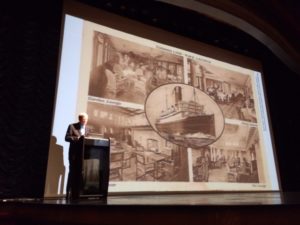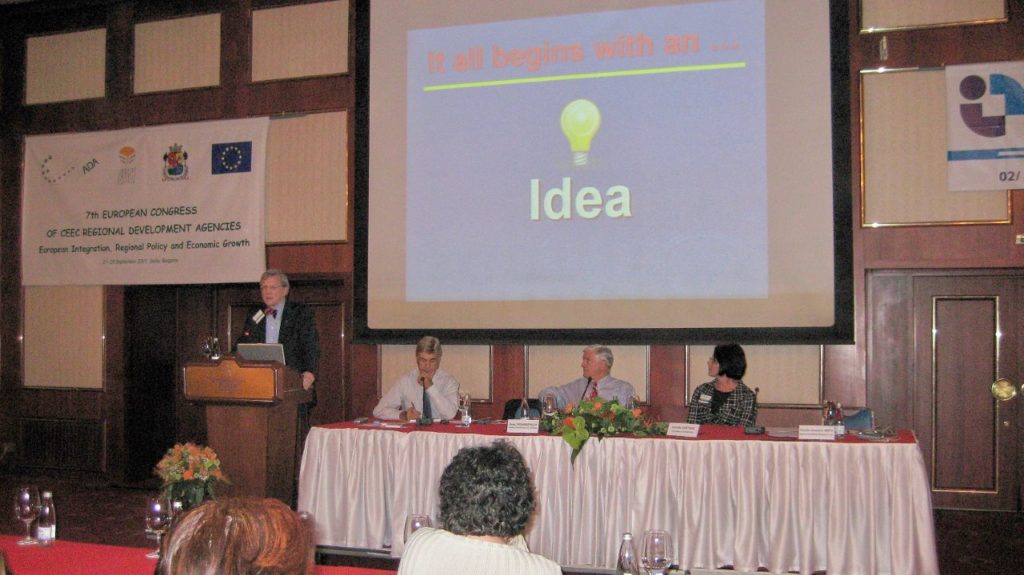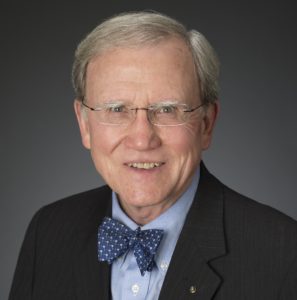Home About Us Industries Served Speakers Our Blog Management Contact Us
Emerson Smith was born in Chicago, lived in Tulsa, and grew up in Dallas.
As a teenager, he delivered the Dallas Morning News on his bicycle. (see Bio)

His undergraduate college education was in Austin at the University of Texas. He received his MA at Texas Christian University in Fort Worth and his PhD from Emory University in Atlanta. His Fellowship was at the University of Exeter, in Exeter, Devon, England.
Emerson is a regular speaker at international, national and regional meetings, at conferences, seminars in the U.S. and Europe, in-person and virtual, and as a Cunard-Insights speaker on the Cunard Line’s Queen Victoria, Queen Elizabeth, and the Queen Mary 2 — the last of the ocean liners — sailing between Brooklyn, New York and Southamption, England.

Topics include, among others,
1. The future of healthcare: from treatment, drugs, and surgery to prevention of illness, disease, injury and premature death.
Emerson served with distinction on the faculty of the American Hospital Association’s original Speaker’s Forum. He serves as a Clinical Research Assistant Professor of Internal Medicine at the University of South Carolina’s School of Medicine at Columbia.

2. The social organization of the Emergency Department: increasing innovation during times of high demand for services.

3. Life in hospitals and in the community in 2030. The movement toward universal health care.
One of the most discussed issues today is whether health is a right or a privilege in the United States.
4. What hospital boards need to know and do to assure a healthy organization and a healthy community.
Emerson has spoken across the country on healthcare issues and as a Press Ganey faculty member for regional meetings and at the national conference. He has spoken at national conferences for the American Hospital Association and the Society for Healthcare Strategy and Market Development (SHSMD).

5. What can we learn from the aviation industry that will help us improve our organizations? How can we improve the safety of our organizations, in businesses, healthcare, and in manufacturing, based on the aviation model for safety and efficiency, the culture of safety?
Emerson is an aviator, an FAA-certificated flight instructor, and a FAA Safety Team Representative.
The aviation industry is the safest in the United States. What is the training and what are the principles that keeps aviation safe, with thousands of flights each day?
6. The history of race and paths toward racial equality.
Human beings first emerged, in the Horn of Africa, 500,000 years ago and then migrated around the world. With the influence of climate and the environment, some of these human beings evolved, in the northern hemisphere, with blue eyes, blond hair, and white skin while others, in the southern hemisphres, evolved with brown eyes and various shades of brown skin. But genetically, in mind, body and spirit, they were all equal.
However, societies evolved that discriminated based on skin color. People with dark skin, for example, were treated differently than people with white skin. These differences are all social creations. Social creations can be changed for the benefit of all.
7. Designing the ideal city. How do we know what is “ideal”? What are examples of cities over the centuries that approach “ideal”? What are the best examples of ideal cities in the world today?
8. Trip to Mars. The late Stephen Hawking has suggested that people on Earth explore other options as Earth becomes less habitable, due to changing climate, deforestation, loss of insect and animal species, and other factors that humans can control.
Emerson is a sociologist with a PhD from Emory University, an MA from Texas Christian University, and a BA from the University of Texas in Austin. He served as a Leverhulme Fellow and Lecturer at the University of Exeter in Devon, England, in the UK. Photos: Metromark, Creative Commons
Contact him now for speaking engagements, virtual or live.


